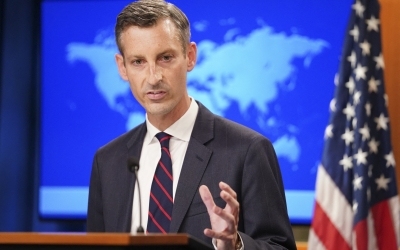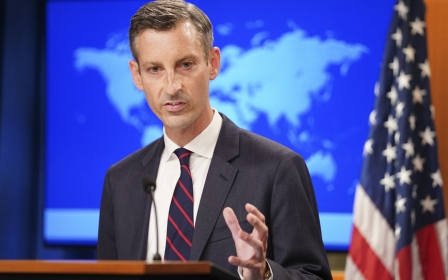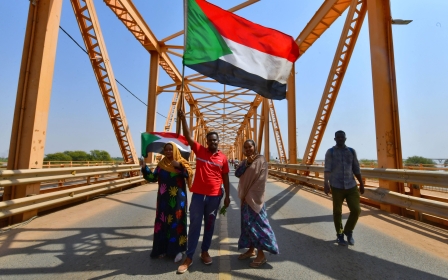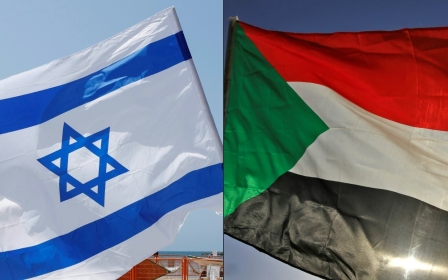Sudan coup 2021: Israeli official says military takeover likely to aid normalisation ties
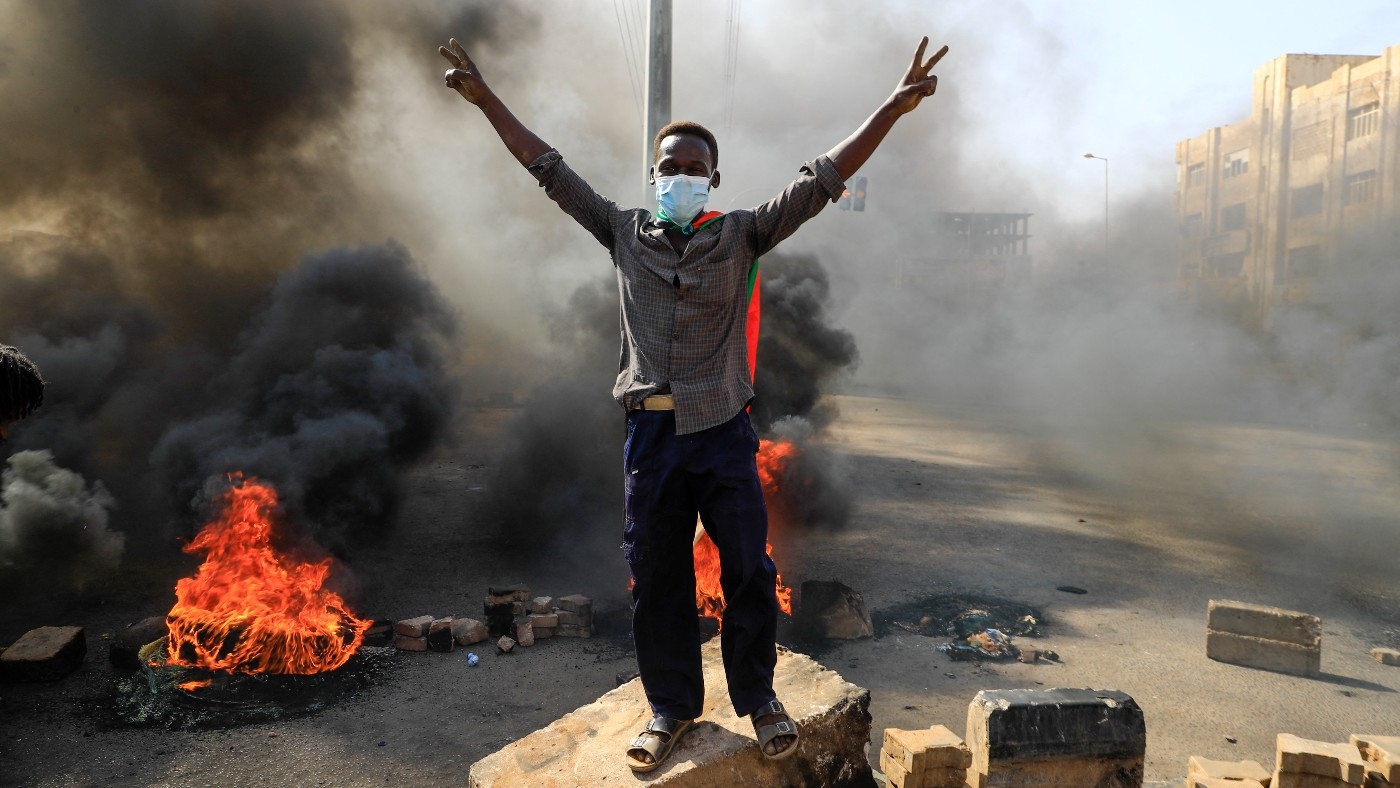
An Israeli official has said the country should support Sudan's General Abdel Fattah al-Burhan following Monday's coup in the country, as he was "more inclined to bolster ties with the US and Israel" than the deposed Prime Minister Abdalla Hamdok.
The offical told Israel Hayom, a popular right-wing daily, that "in light of the fact that the military is the stronger force in the country, and since Burhan is its commander in chief, the events of Monday night increase the likelihood of stability in Sudan, which has critical importance in the region".
In October 2020, Sudan agreed to a US-brokered deal to normalise ties with Israel, following similar moves made by the United Arab Emirates and Bahrain. Morocco followed suit in December. The agreement still needs to be approved by Sudan's parliament.
On Monday, Washington said that it would have to reassess the normalisation of ties between Sudan and Israel in light of the coup.
"The many partners now we've spoken with have expressed a similar degree of alarm, concern and condemnation of what we've seen take place in Khartoum in recent hours," US State Department spokesperson Ned Price said during a news conference.
"Similar to the approach to the [Grand Ethiopian Renaissance Dam], I think the normalisation effort between Israel and Sudan is something that will have to be evaluated as we and as Israel watches very closely."
Price's comments came shortly after he announced that Washington would be suspending $700m in emergency assistance to Sudan, which was "intended to support the country's democratic transition".
Coup 'all but inevitable'
Sudan's military has been widely seen as more supportive of the normalisation deal than the civilian members of the country's government, who have been suspicious of any deal.
In January, protesters took to the streets of Khartoum to demonstrate against the normalisation of ties. They burned the Israeli flag in front of the headquarters of the Ministerial Council, in a demonstration organised by the Popular Forces Against Normalisation.
The Israeli official argued that "the coup was all but inevitable because the prime minister has been at odds with the military for several years and it was obvious that this would reach a decision point".
The official also compared the situation in Sudan with that in Egypt, telling Israel Hayom that Sudan "is very much like what Egypt experienced after former strongman Hosni Mubarak was toppled in 2011, who had ruled the land of the pyramids for decades before stepping down during the popular uprising known as the Arab Spring".
Military sought 'backing of Israel'
Dr Jihad Mashamoun, a researcher and political analyst, told MEE: "The Sudanese military has always been approaching Israel or isolating the civilians from being approached by Israeli officials.
"The military believes that if they have the backing of Israel, Israel will lobby on behalf of the military in the US in favour of the Sudanese military's control over the transition period in Sudan.
"Israel would want a military partner in Sudan rather than a civilian one, because anything that a civilian government does has to go through parliament. The problem for Israel is that if this normalisation agreement goes through parliament, it won't pass."
The US has said that it is reviewing a full range of economic options to address the coup, but that it was too early to decide whether it will impose sanctions on Sudan, which is suffering from a dire economic situation amid the political turmoil.
Meanwhile, a number of US lawmakers put out a statement calling for the "immediate suspension of further international financial assistance and other appropriate measures".
Already impacted by decades of isolation and sanctions, inflation in Sudan approached 400 percent in June, and the nation has been witnessing shortages of basic goods and services and a spike in food insecurity.
Price noted that the US will continue to maintain its humanitarian assistance to Sudan. Washington has provided nearly $377m in such aid to the country so far in 2021.
Middle East Eye delivers independent and unrivalled coverage and analysis of the Middle East, North Africa and beyond. To learn more about republishing this content and the associated fees, please fill out this form. More about MEE can be found here.


